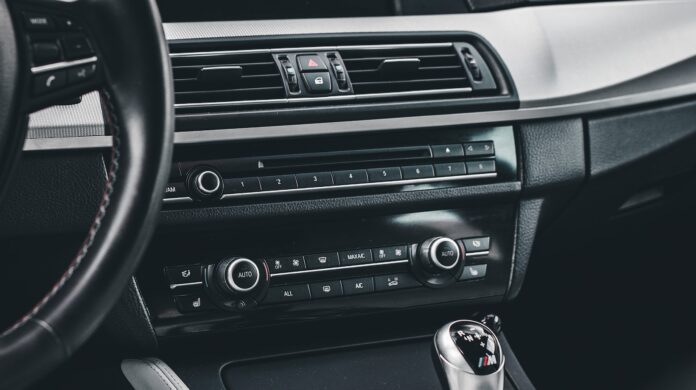Is It Bad to Sit in Your Car with the AC On
First and foremost, it’s important to acknowledge that running your car’s AC while parked can have some negative effects on both your health and the environment. When the AC is running, it emits harmful pollutants into the air, contributing to air pollution. Additionally, prolonged exposure to cold air from the AC can lead to dryness of the nasal passages and throat irritation.
Furthermore, sitting in a stationary vehicle with the engine running solely for the purpose of using the AC can waste fuel and increase greenhouse gas emissions, which contribute to climate change. It’s worth noting that idling your car excessively is generally discouraged due to its impact on both personal health and environmental well-being.
Air Quality and Health Consequences
When it comes to sitting in your car with the AC on, one crucial aspect to consider is air quality. The air inside your vehicle can have a significant impact on your health, especially if it is polluted or contaminated. Poor air quality can lead to a range of health issues, affecting both short-term comfort and long-term well-being.
Breathing in low-quality air can cause irritation of the respiratory system, leading to symptoms such as coughing, sneezing, and throat discomfort. Additionally, exposure to pollutants like carbon monoxide or volatile organic compounds (VOCs) can have more severe effects on your health, particularly if you spend extended periods in your car with the AC running.
Understanding the Link Between Poor Air Quality and Respiratory Issues
Poor air quality has been directly linked to various respiratory issues. When we breathe in polluted air for an extended period, our lungs are exposed to harmful particles that can trigger inflammation and damage lung tissue. This increased susceptibility may contribute to the development or worsening of conditions such as asthma or chronic obstructive pulmonary disease (COPD).
Furthermore, individuals with pre-existing respiratory conditions may be even more vulnerable when sitting in a car with poor air quality. The confined space amplifies their exposure to any pollutants present inside the vehicle, making it essential for them to prioritize good ventilation and cleaner environments.
Common Health Consequences of Breathing in Polluted Air
Breathing in polluted air consistently can lead not only to immediate discomfort but also long-term health consequences. Here are some potential impacts:
- Respiratory Symptoms: Exposure to poor-quality air may result in persistent coughing, wheezing, chest tightness, and shortness of breath.
- Aggravation of Existing Conditions: Individuals already living with asthma or allergies might experience heightened symptoms due to pollutant exposure.
- Cardiovascular Effects: Prolonged exposure to air pollution has been associated with an increased risk of heart disease, stroke, and other cardiovascular issues.
- Lung Function Decline: Long-term exposure to polluted air can lead to a decline in lung function over time, potentially reducing respiratory capacity.

Effects on Fuel Consumption
When it comes to sitting in your car with the AC on, you may wonder about its impact on fuel consumption. Let’s delve into this topic and explore the effects of running your car’s air conditioning system while parked.
- Increased Fuel Usage: Running the AC while idling in your car can lead to increased fuel consumption. The engine needs to work harder to power the compressor that cools down the air, resulting in more fuel being burned.
- Engine Load: When the AC is turned on, it puts an additional load on the engine. This extra load can reduce overall fuel efficiency and increase fuel consumption.
- Idling vs Driving: It’s worth noting that idling with the AC on consumes more fuel than driving with the windows up and using natural ventilation instead. So if you’re parked for an extended period, it might be better to turn off the engine rather than keeping it running solely for cooling purposes.
- Hybrid/Electric Vehicles: In hybrid or electric vehicles, where there is no traditional internal combustion engine idling when stationary, running the AC will draw power from the battery pack or hybrid system. While this does not directly impact fuel consumption since there is no gasoline involved, it can affect overall range and battery life.
- Impact of Temperature: The outside temperature also plays a role in how much energy is required to cool down your car’s interior. On extremely hot days, especially if parked under direct sunlight, relying on air conditioning becomes almost inevitable for comfort but will result in higher energy usage.
It’s important to note that these effects may vary depending on factors such as vehicle make and model, engine size, ambient temperature, and individual driving habits.
In conclusion,
- Running your car’s AC while parked can increase fuel consumption.
- It puts an extra load on the engine and reduces overall fuel efficiency.
- Idling with the AC on consumes more fuel than driving with windows up and using natural ventilation.
- Hybrid or electric vehicles will draw power from the battery pack when running the AC.
- The impact of temperature is significant, especially on hot days.
Remember to use your discretion and consider these factors when deciding whether to sit in your car with the AC on.


